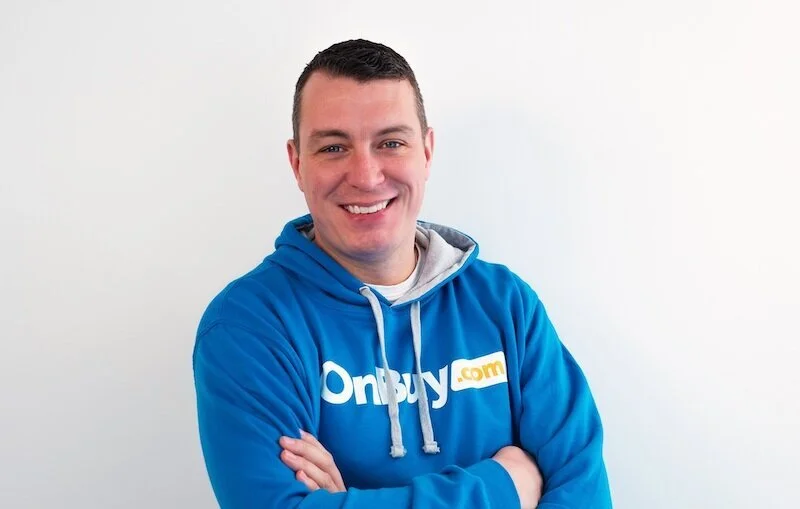The retail technology year in review: February 2020
RTIH takes a look at the retail technology space during February and rounds up the winners, losers and major developments.
Good month for…
Online fashion retailer Zalando said that a record number of 31 million customers (2018: 26.4 million) ordered from it in 2019.
Israeli micro-fulfilment startup Fabric, formerly known as CommonSense Robotics, added Evolv Ventures, the investment arm of Kraft Heinz, to its $110 million Series B funding round.
London-based CX startup Chattermill closed an $8 million Series A round.
Kenya-based B2B e-commerce startup Sokowatch raised $14 million in Series A funding.
Indian venture BharatPe announced a $75 million Series C funding round.
Ocado boss Tim Steiner picked up a £54 million bonus, despite the online retailer posting a £214.5 million loss last year.
US buy now, pay later venture Sezzle surpassed the one million active customer mark.
Customer engagement platform startup, Dixa, closed a $36 million Series B round led by Notion Capital, with participation from existing investors Project A Ventures and SEED Capital.
UK-based online marketplace OnBuy.com secured a £3 million investment from Fuel Ventures.
Deliverr closed a $40 million Series C round led by Activant Capital.
German startup Loyalty Prime, developer of an SaaS-based loyalty platform, announced a €5 million Series B round.
British startup NearSt, whose technology links products on shop shelves in real-time to nearby customers searching in Google, landed £2 million in seed funding.
The market for self-ordering kiosks is booming, with various restaurant operators deploying the technology, according to RBR.
Bad month for…
In the final quarter of its fiscal year, Wayfair made a net loss of $330 million. This brought the total loss for the year to $985 million.
Ikea said it would close its Coventry city centre store during the summer, marking the first closure of one of its large format UK branches.
Walmart reported weak Q4 2019 earnings, which saw revenue of $141.67 billion versus the $142.55 expected and adjusted earnings per share of $1.38 versus the $1.44 expected.
The retailer cited a number of factors, including “softer” than anticipated holiday sales in US stores.
Amazon got caught up in a Holocaust row after releasing a new series, Hunters, on its Prime Video offering.
Also during February…
Swedish buy now, pay later specialist, Klarna, announced it had hooked over seven million customers in the UK.
At the same time, however, it reported a loss of $113 million on revenues of $740 million in 2019. This was its first loss since the company was founded 15 years ago.
Growth in new markets meant more first time customers who proved less reliable with repayments.
Meanwhile, Klarna rival Afterpay announced its results for the six-month period ended 31st December 2019.
The Australian company posted a $35 million loss, a 66% wider loss than the same period a year ago, as it pursued growth in the US and UK markets.
US-based venture capital firm Fifth Wall closed a $100 million vehicle labelled the Retail Fund. This is aimed at online players wanting to add physical stores to their arsenals.
Amazon opened its first Amazon Go Grocery store in Seattle.
The 7,700-square-foot space taps cameras, shelf sensors and software to allow shoppers to pick up items and walk out without stopping to pay or scan merchandise. Accounts are automatically charged through a smartphone app when they exit.
Tesco opened its first cashless store, situated in High Holborn, London.
Amazon boss Jeff Bezos created a $10 billion fund to combat climate change.
Etsy completed its migration to Google Cloud.
Sainsbury’s took the wraps off its new On the Go city convenience store format. The retailer’s 2,200 sq ft Mansion House store in London’s Square Mile was the first to go live.
M&S expanded its Mobile Pay Go technology to 50 stores, following a trial across Edgware Road, Bankside, Waterside Paddington, West Hampstead, Canary Wharf and Stratford Westfield in London.
Worldline was set to acquire Ingenico, in a cash and share deal giving the latter a valuation of €7.8 billion ($8.6 billion) and creating the fourth largest payment services player worldwide.
7-Eleven announced it was testing out a 700-sq.-ft. cashierless store at its Irving, Texas HQ.
John Lewis launched an augmented reality feature on its IOS app, enabling customers to see how sofas and armchairs will look in their homes before they buy.
Global contactless transaction values will reach nearly $6 trillion in 2024, up from $2 trillion in 2020, according to Juniper Research.
52 retailers, including Asda, Primark, Sainsbury’s, Debenhams and Poundland, called on the government to take the first steps towards fundamental business rates reform in the upcoming budget.
Hot on the heels of Tesco launching its Clubcard Plus subscription scheme (as well as Clubcard Prices cardholder-only discounts), Sainsbury’s unveiled Nectar Prices, providing discounts on 266 items.
Amazon spent $15 billion on new tools to help third party sellers.
Singapore-headquartered computer vision and analytics solutions venture Trax acquired Paris-based startup Qopius, which provides AI-based in-store solutions to the likes of Carrefour, Casino, Metro and MediaMarktSaturn.
E-commerce big hitter Shopify became a member of Facebook’s Libra Association.
Waitrose added its online delivery service to 24 more UK stores in preparation for its split from Ocado.










